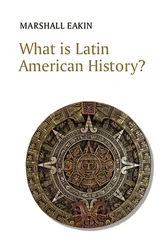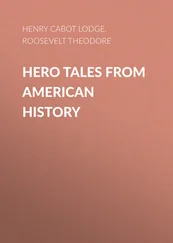On March 3, 1991, Rodney King, an African-American, was arrested for speeding on a California freeway. By chance, a witness carrying a camcorder videotaped the arrest: a brutal beating by four nightstick-wielding Los Angeles police officers. The tape was broadcast nationally, sending shockwaves of outrage from coast to coast. Incredibly, the officers were acquitted on April 30, 1992, by an all-white jury in the upscale California community of Simi Valley. Five days of rioting, arson, and looting erupted in Los Angeles, especially in the city’s predominantly black South-Central neighborhood. (In a second, later trial on federal civil rights charges, two of the officers were convicted.)
The first verdict and the riots that followed—the worst urban disorder since the New York “Draft Riots” during July 13-16, 1863—were heartbreaking, suggesting that we as a nation had not come very far in learning to live harmoniously and productively together. Yet the sad episode was also a demonstration of how technology could serve the ends of democracy. For despite the jury’s verdict, the beating, videotaped and broadcast, united most of the nation not in rage but in outrage. As those brutal images flickered across television screens everywhere, unquestioning belief in law and order dissolved. Middle-class whites were forced to ask themselves, Is this what it means to be black in America? At the very least, those millions who saw the beating had to ponder: This is exactly what American democracy was created to prevent.
Television brought another racially charged legal battle into the nation’s living rooms when O.J. Simpson, an African-American who had made it big as a football star and, later, sports broadcaster, was tried for the brutal murder of his ex-wife, Nicole Brown Simpson, and her friend Ronald Goldman. For almost a year, the televised “Trial of the Century” riveted a significant portion of the population. On October 3, 1995, after having been sequestered for 266 days and then deliberating for less than four hours, the Los Angeles jury found Simpson not guilty. While television had once again united the nation in focus on a single event, the televised verdict revealed a deep national division along racial lines. Whites overwhelmingly deemed the decision a miscarriage of justice, whereas the majority of African-Americans believed Simpson had been the innocent victim of racist police officers determined to frame him for the murder of his white ex-wife and her white friend.
Many Americans complained during the long Simpson trial that the media, in devoting coverage to every minute detail of the tortuous legal maneuvering that characterized the proceedings, gave short shrift to many other important stories of the year. Perhaps. But the televised trial did have much to teach us about our nation; about what it means to live in a country based on the presumption of innocence; about what it means to be black—or white—in the United States; about how access to wealth may influence the outcome of a trial.
From Leave It to Beaver to Sesame Street to the Internet
The Simpson trial also reminded us—if we needed reminding—of how profoundly mass media, particularly television, shapes our perceptions, even as it mirrors them. Back in the late 1950s and early 1960s, television programs depicted the American family as a collection of ethnically nondescript, vaguely Protestant white people living in white-painted, picket-fenced colonial-style suburban homes: the Ward, June, Wally, and Theodore “Beaver” Cleaver of Leave It to Beaver. This is how we liked to think of ourselves back then, and television obliged.
Then television brought us Sesame Street in 1969, a series aimed at entertaining and teaching children, but one that also depicted an urban neighborhood populated by whites, blacks, Hispanics, Asians, as well as people with handicaps and disabilities. The journey from Leave It to Beaver to Sesame Street consumed a decade in which a majority of Americans became more mindful and more accepting of the essence of democracy: From many, one.
And that mindfulness may just be the engine driving popular fascination with yet another technology. As little as two decades ago, the world of computers was an arcane realm that commanded relatively little interest and less understanding from most folks. Use the word Internet much before the 1990s, and you might as well have come from outer space.
Now it is difficult to get through a day without hearing some reference to the Internet. For an increasing number of Americans, few days go by without a personal visit to it.
A network of computer networks, the Internet is an information superhighway and also a forum, the ultimate town square, a place where ideas can be aired, shared, and debated. As yet, the Internet is unregulated by any government agency. Is the Internet democracy? No. Democracy cannot be reduced to this or that technology. But the Internet is an expression of democracy, a fervent wish to be democratic, to hear and to be heard, to share, to communicate, to connect with one’s neighbors—next-door and around the world—and to be at the center of a great web that offers infinite centers (since, on the Internet, the center is wherever you happen to be).
Will the Internet make democracy any easier? Maybe, maybe not. But, more important, after the more than 200 years since the Constitution was written with pen and ink in the painstakingly graceful hand of the 18th century, the binary 0s and 1s, the light-speed ebb and flow of electrons through the Internet continue to embody the passion, the ideals, the dreams of those who founded the nation and those who have nurtured it for so long. Whether penned with a quill or tapped out on a keyboard, the message is the same: E pluribus unum—From many, one.
The Least You Need to Know
The 1990s have been characterized by discontent, political extremism, and rage that threaten democracy, but also by a renewed passion to gather and share information and ideas, the very elements that keep democracy strong.
A revolution in electronic media, born in large part of an impulse to democracy, may well promote and preserve democratic values in the next millennium.
Even though Perot dropped out of the race for a time (stunning his many supporters), he won 19,237,247 votes, an astounding 19 percent of the popular vote total.
After World War II, from 1947 to 1961, the birth rate sharply rose in America. This period was described as a baby boom , and those born during this time were baby boomers . Those born between 1961 and 1972, typically college educated but chronically pessimistic and vaguely dissatisfied with career possibilities, have been dubbed Generation X, a label drawn from a novel of that name by Douglas Coupland.
During the 1980s and 1990s, Americans heard a great deal about PACs . A PAC – Political Action Committee –is a special interest group, lobby, or pressure group organized to raise money for specific political activity.
“In God We Trust” is plain enough English. The Great Seal of the United States, reproduced on the dollar bill, also Includes two phrases of Latin: Annuit coeptis (“He has favored our undertakings) and Novus ordo seclorum (“A new order of the ages”).
Newt (Newton Leroy) Gingrich (b. 1943), elected U.S. Congressman from Georgia’s 6th District in 1979, became Speaker of the House in 1995. Intensely, abrasively partisan, the eloquent Gingrich brilliantly masterminded the Republican party’s so-called “Contact with America.” This conservative legislative agenda promised smaller government, more responsive government, and a renewal of a sense of opportunity in American life. Gingrich has drawn ardent admiration from conservatives and equally contempt from liberals.
Читать дальше












